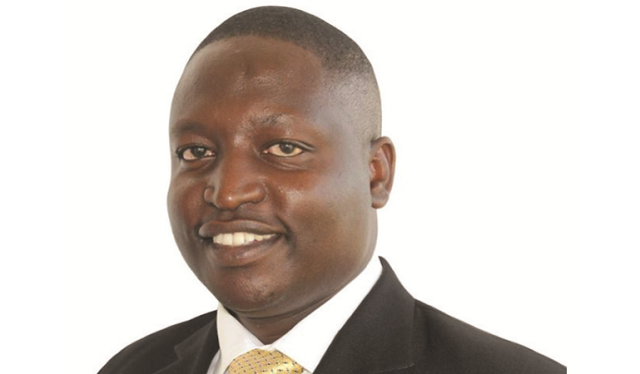
World Bank upbeat about economy | Says Public Private Partnerships on large projects could spur economy
Kampala, Uganda | IAN KATUSIIME | The Uganda economy could grow at a rate of 5.2% during the current Financial Year 2017/18, according to the latest World Bank update released on July 25. That figure represents a 100% positive shift in the rate of economic growth and is the only positive sliver in a report that dwelt mainly on the poor performance of the economy in the previous FY 2016/17.
News about the Uganda economy is mainly not good. For the Financial Year ending June 2017, the government failed to execute many public investments, continued to perform badly in revenue collection, and had to deal with a terrible drought- all which slowed economic growth.
The aftershocks of the high inflation of 2011 that peaked at 30% were still having lingering effects and continued to constrain private investments. Commercial bank credit to the private sector remained subdued and the government’s financial policy is undermined by overspending on operational matters such as wages and less on the development budget.
On a positive note, Rachael Sebudde, a senior economist for World Bank Uganda, who made a detailed presentation on the economic update at the Ministry of Finance boardroom in Kampala on July 25, noted that for the year ending June 2017, “Inflation remained low, through the year, allowing sustained easing of monetary policy”.
She noted that there was impressive performance on the external account; which is the net income to the economy from abroad. The current account; which shows the difference between exports and imports, improved and shortfalls in capital inflows made a positive turn around during the second half of the financial year ending June 2017.
The Ugandan economy has been growing at one of the slowest rates in the past decade with GDP growth rate estimated at 2.5% per annum during the first nine months of FY 2016/17. The growth outcome was almost two percentage points lower than projected in the budget for the just ended year and, according to the World Bank, unforeseen macroeconomic shocks on private sector activities slowed economic growth.
Not that it is a surprise since, for most of 2016, almost all top businesses in Uganda were operating under a cloud of economic depression and heavy unserviceable debt. A few were publicly appealing to the government for bail out. Crane Bank, which was Uganda’s fourth largest bank by assets, went into receivership, during the period covered by the update.
Positive outlook
Regarding the positive outlook for 2017/18, the World Bank has several caveats; the weather conditions must improve, credit to the private sector should ease up, and public investments must take off. In other words, everything that went wrong last year must go right this year.
The World Bank is upbeat that private investments could accelerate if Foreign Direct Investment (FDI) in the extractives sector increases, following recent key developments in the oil sector, including the issuance of long-awaited exploration agreements, and signing of Hoima–Tanga pipeline agreement.
Construction and services are expected to be the main drivers of growth, drawing from the huge infrastructure investment program as per this year’s budget.
A low revenue base, a tendency of government granting tax exemptions, and failure of infrastructure investments to generate sufficient growth remain present risks to the outlook, according to the bank.
Sebudde said the government’s large scale infrastructure investment programs face a potent risk of failing to attract sufficient financing and says alternative sources of financing should be explored.
PPP for mobilising infrastructure finance
Sebudde mentioned Public Private Partnerships (PPP) as a means to efficiently mobilise Uganda’s infrastructure finance because they allow public expenditures related to the capital cost of infrastructure assets to be spread over time and generate higher levels of revenue. She said infrastructure projects are easier to be achieved if they are managed and operated by the private sector, are of better quality, and are implemented in a timely manner that minimises cost overruns.
Although there have been cases of outright failure of PPPs, including the Rift Valley Railways project, the Kampala-Jinja Expressway is being studied for possible implementation as a PPP.
Sebudde, however, warned about the danger of PPPs raising the cost of public investment if they turn out to be more expensive.
“Government may not be able to avoid all risk,” she said, “certain risks; such as the demand, forex, interest rate and inflation risks through provision of guarantees are normally born by government.” She stated that PPPs are bound to fail if operating within an environment with deficiencies in management of sectors through under-pricing, inefficient operations, and poor implementation.
For Uganda to maximise value from PPPs, Sebudde outlines a raft of measures including establishing of methodologies for detailed feasibility analyses, including value for money assessments and fiscal affordability assessments, streamlining the procurement processes, and adding greater detail and competition into the processing of unsolicited projects.
She said the government needs to build a robust PPP pipeline by implementing a mechanism for screening project ideas from the investment and PPP perspectives, and linking them to developing innovative financing mechanisms.
Some participants at the update cited international bond issuance as another way for the government to raise financing. Issuance of a Eurobond was mooted but the Deputy Secretary to the Treasury, Patrick Ocailap, did not sound optimistic about it.
“Since we have been warned about our borrowing,” he said, “we need to be cautious of further borrowing. A Eurobond can only be considered after we have exhausted all the options.”
The Minister of State for Planning, David Bahati, agreed with Ocailap. “We remain open to all forms of borrowing but our target is to remain on concessional financing,” he said.
****
 The Independent Uganda: You get the Truth we Pay the Price
The Independent Uganda: You get the Truth we Pay the Price


